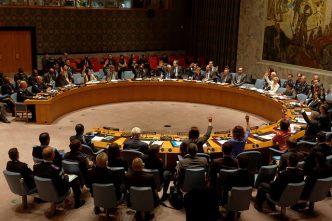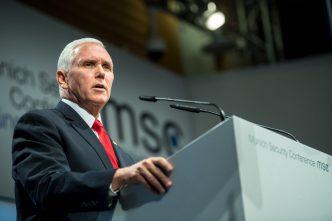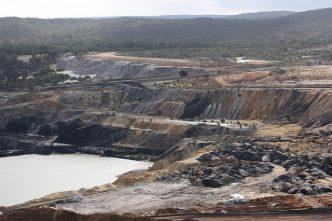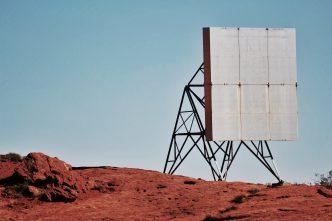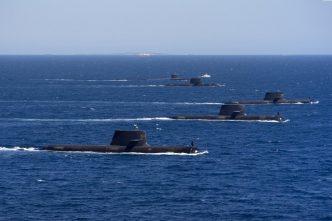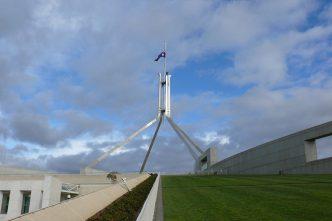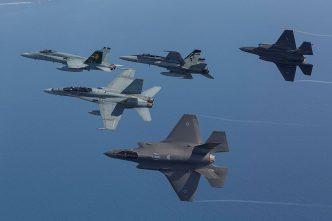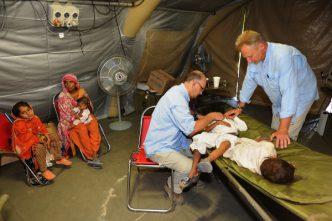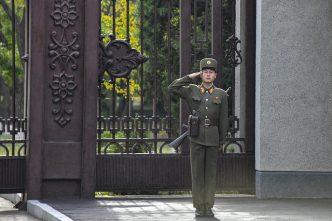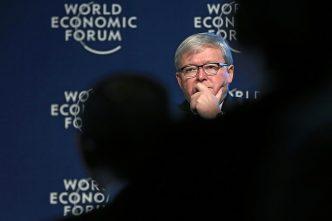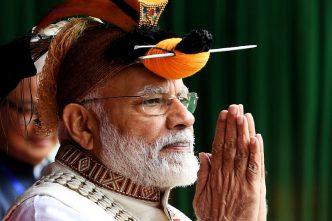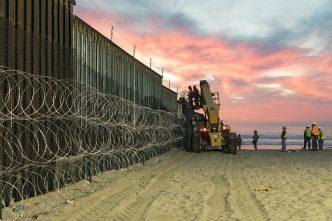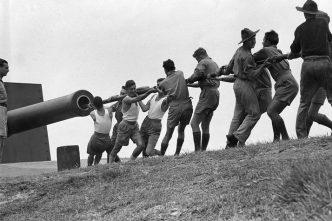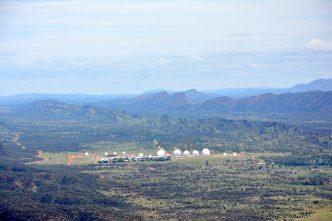Facebook and Google disclosed last month that they would be making changes to the ways users can interact with, monitor and block advertisements. An independent programmer pointed out that the proposed changes to Google’s Chrome …
This essay is from ASPI’s just-released election special, Agenda for change 2019: Strategic choices for the next government. The report contains 30 short essays by leading thinkers covering key strategic, defence and security challenges, and offers short- …
Two Americas were represented by two different vice presidents at the Munich Security Conference this year. Between them, former Vice President Joseph Biden certainly received the warmer reception, but Vice President Mike Pence may have …
Super-fast machine processing will increase the speed of modern warfare, but skilled men and women will remain the crucial decision-makers, say Australia’s air force commanders. RAAF chief Air Marshal Leo Davies and deputy chief Air …
Our coal exports to China sneezed last week, but the market and media reactions to the sniffle were as if the gravy train that is our $15 billion coal trade with China had come down …
I find myself in avid agreement with American strategic analyst Kori Schake, who comments that, since the end of the Cold War, complacency in the West has led to ‘flabby’ strategic thinking. She writes of …
Sea state The nuclear-attack submarine USS Santa Fe sailed with four of Australia’s Collins-class submarines during Exercise Ocean Explorer last week. This is the third year for the training exercise, which is held in the …
This essay is from ASPI’s election special, Agenda for change 2019: Strategic choices for the next government, released today. The report contains 30 short essays by leading thinkers covering key strategic, defence and security challenges, …
In past conflicts, many hours, days or weeks were spent gathering and analysing intelligence before an attack was launched on an enemy. Advances in science and technology have brought that time down to minutes, and …
In the lead-up to each federal election, ASPI releases its Agenda for change: Strategic choices for the next government to help shape election platforms and public debate. This year the report contains 30 short essays …
More than 16 years after the 2002 Bali bombings, Australia’s National Critical Care and Trauma Response Centre (NCCTRC) in Darwin continues to demonstrate the importance of both geopolitical location and regional preparedness, particularly in the event …
North Korea set out on its quest to develop a nuclear-weapons capability (reliable nuclear explosive devices and the means to deliver them over medium and long distances) in the mid-1980s. Progress was slow and uneven. …
Australia’s first responders and health officials are dealing with an ever-growing number of drug users and addicts, who are now dying in record numbers. The use of methamphetamines, particularly crystal methamphetamine (‘ice’) has plagued the …
The Quad is more notable for the questions it provokes than the answers it offers. The informal dialogue between the US, Japan, Australia and India is a discussion groping towards a grouping. ASPI’s paper Quad …
The world Three of Australia’s major political parties and the parliament have been hacked by a ‘sophisticated state actor’. For the details see the New York Times. Writing in The Strategist, Peter Jennings outlines why …
The Indian government is ploughing ahead with its plans to develop the country’s northeast, including the state of Arunachal Pradesh, which China claims as its own territory. Earlier this month, Prime Minister Narendra Modi laid …
President Donald Trump has declared a national emergency at the southern border of the United States—where there is no emergency at all—in order to access funding to build the wall that he promised his supporters …
In the lead-up to each federal election, ASPI releases its Agenda for change: Strategic choices for the next government to help shape election platforms and public debate. This year the report contains 30 short essays …
In this podcast, Tom Uren and Elise Thomas discuss the revelations that a ‘sophisticated state actor’ was behind cyberattacks on Australia’s parliament and major political parties and ask where we draw the line between espionage and …
Since the 1980s, Australian defence ministers have made regular parliamentary statements about the roles and functions of the US–Australia joint defence facilities (at Pine Gap, North West Cape and, until 1999, Nurrungar). These are important …

